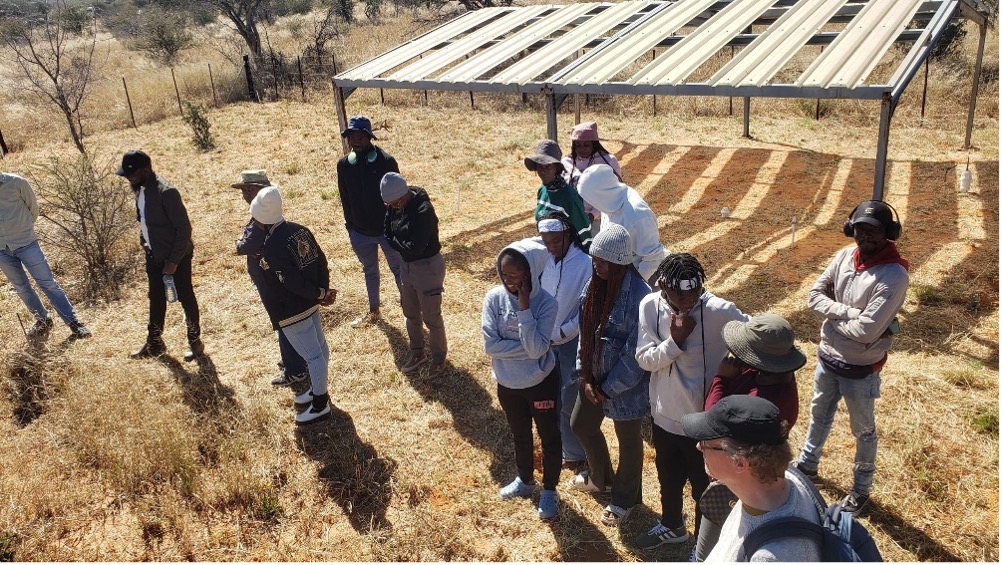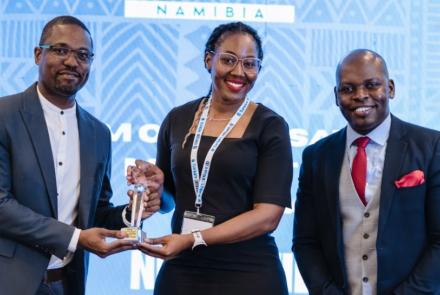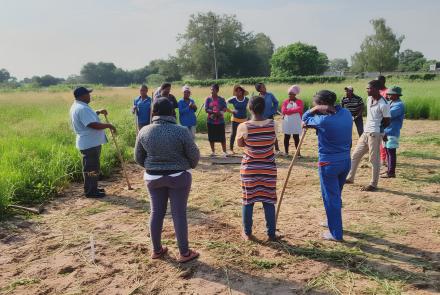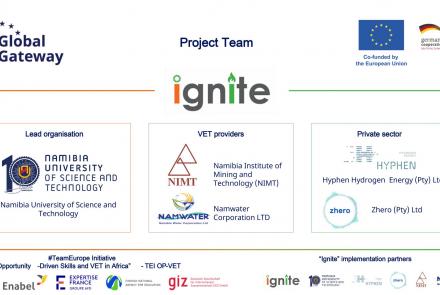NamTip’s Focus on Impact, Policy, and Community Voices
NamTip—Understanding and Managing Desertification Tipping Points in Dryland Social-Ecological Systems – A Namibian Perspective—is a joint German-Namibian initiative led by the University of Potsdam, with NUST as a key project partner. As the project approaches its conclusion next year, a series of closing workshops and a press event were hosted last month to mark a major milestone in this landmark research collaboration.
The events brought together farmers, researchers, policymakers, students, and media to share findings and reflect on progress made in addressing desertification tipping points in Namibia’s drylands. NamTip has played a pivotal role in promoting sustainable land-use practices, ecological restoration, and resilience in Namibia’s savannah rangelands.
The week began with a stakeholder workshop in Okakarara, focusing on the realities of desertification on freehold farms. This was followed by a second workshop in the communal village of Ozongarangombe, where the spotlight shifted to communal farming challenges under changing environmental conditions. Field visits to Farm Hamakari offered participants a chance to see research efforts on the ground.


Notable guests included the President of the University of Potsdam and Deputy Vice-Chancellors from NUST and UNAM, alongside school learners who presented environmental education projects supported by NamTip. “This Namibian-led initiative contributes to global efforts to combat desertification and promote resilience in vulnerable dryland regions. This aligns closely with NUST’s strategic goals, particularly in advancing applied research and innovation, promoting environmental sustainability, and contributing to national development priorities,” remarked Prof Colin Stanley, NUST’s Acting Deputy Vice-Chancellor for Research, Innovation and Partnerships.
Dr Meed Mbidzo, the Head of the Department of Natural Resource Sciences at NUST and the Principal Namibian Investigator for the project, said: “These workshops were crucial in ensuring that scientific findings are translated into actionable knowledge for those most affected by land degradation.”
The final press event, held in Windhoek on 26 June, included the formal handover of policy-oriented fact sheets. As NamTip winds down, efforts are now centred on finalising research outputs and ensuring that knowledge generated continues to inform policy and practice.




